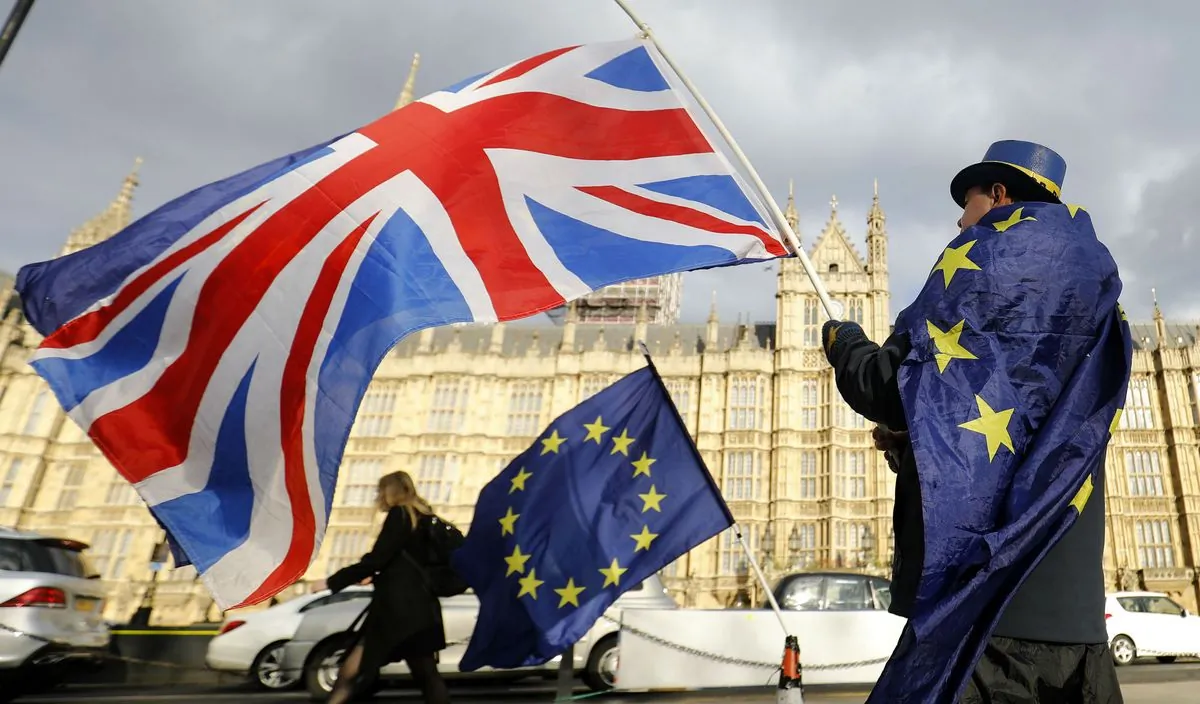Labour's EU Reset Attempt Faces Unexpected Hurdles
Labour's efforts to improve UK-EU relations encounter resistance from Brussels. The party's approach, based on concessions and regulatory alignment, is met with counter-demands, revealing complexities in post-Brexit diplomacy.

The Labour Party's recent attempt to "reset" relations with the European Union has encountered unexpected challenges, highlighting the complexities of post-Brexit diplomacy. Despite offering concessions and proposing closer ties, the party's initiatives have been met with counter-demands from Brussels, echoing previous negotiations between the UK and EU.
Sir Keir Starmer and David Lammy, key figures in Labour's approach, have proposed enhanced cooperation in economic, energy, and defence sectors. However, their overtures have not received the anticipated warm reception. Instead, EU officials have responded with their own list of requirements, including guaranteed access to UK fishing waters beyond 2026 and modifications to the Northern Ireland Protocol.
This response mirrors the experiences of previous Conservative governments during Brexit negotiations. When Theresa May suggested maintaining regulatory alignment in 2018, she was reminded that Brexit meant a departure from EU systems. Similarly, Boris Johnson's proposal for a Canada-style deal in 2019 was rebuffed.
Labour's strategy appears to be based on two contentious assumptions. Firstly, it attributes any shortcomings in the current UK-EU relationship to Conservative reluctance rather than EU intransigence. Secondly, it presumes that Brexit has negatively impacted the UK economy, despite evidence suggesting otherwise.
"You can't write off 48 per cent of voters without a serious fight, and we cannot usher in rule by plebiscite which unleashes the 'wisdom' of resentment and prejudice reminiscent of 1930s Europe."
This quote from David Lammy illustrates the party's strong pro-EU stance, which may have influenced their approach to negotiations.
Economic data presents a different picture than Labour's assumptions. In the past two quarters, the UK has outperformed other G7 nations in economic growth, while Germany, often seen as the EU's economic powerhouse, has experienced stagnation and contraction.

The article suggests that instead of pursuing closer alignment, the UK should allow the EU to propose improved economic links. It also recommends preparing counter-demands, particularly regarding the Northern Ireland Protocol.
Labour's approach to EU relations appears to be driven more by a desire to atone for Brexit than by practical objectives. This mindset, the article argues, may not be conducive to effective negotiations with Brussels.
As the UK continues to navigate its post-Brexit relationship with the EU, the complexities of international diplomacy and economic realities will likely shape future discussions. The outcome of these negotiations will have significant implications for both the UK and the EU in areas such as trade, security, and regulatory alignment.


































